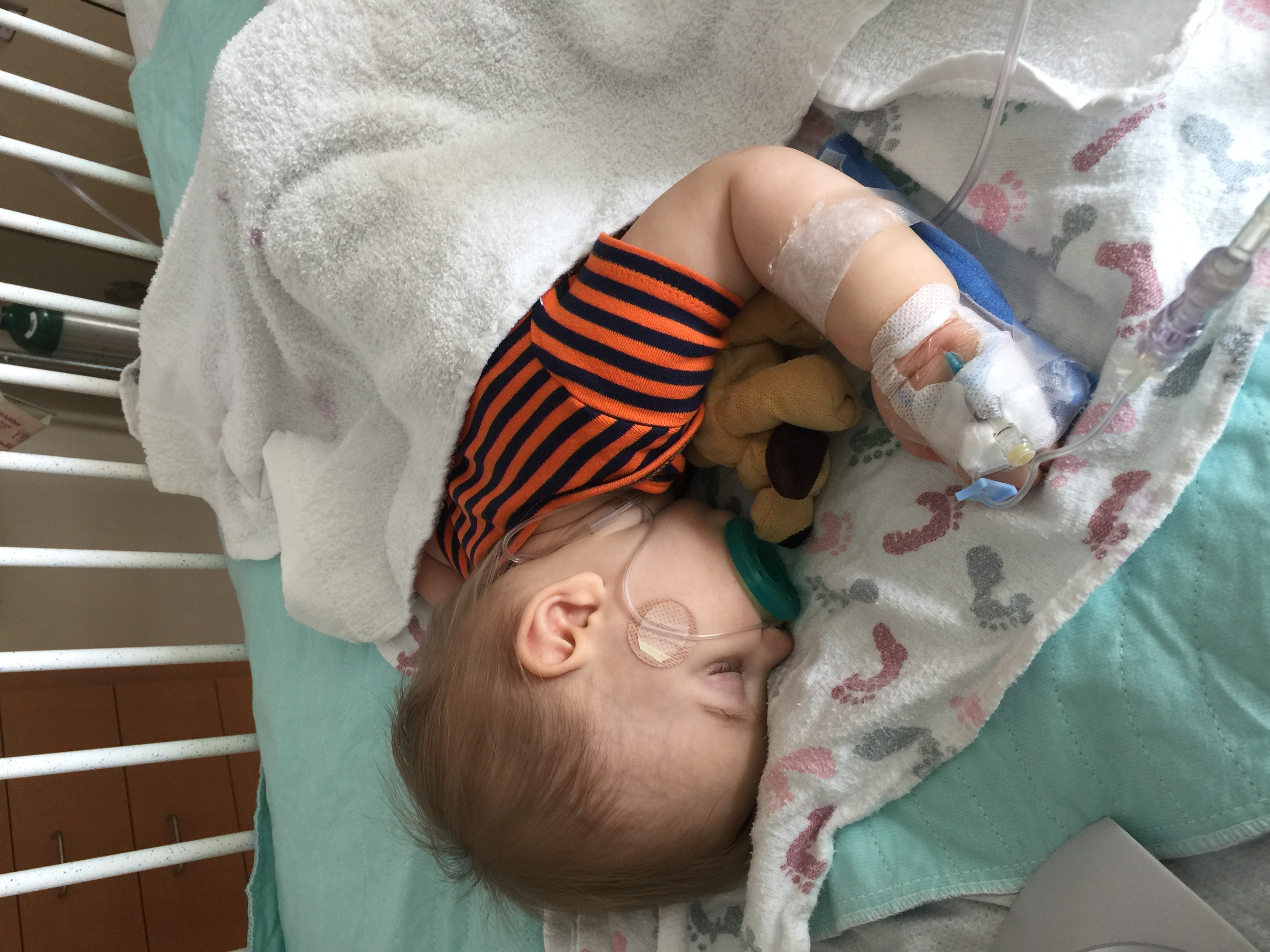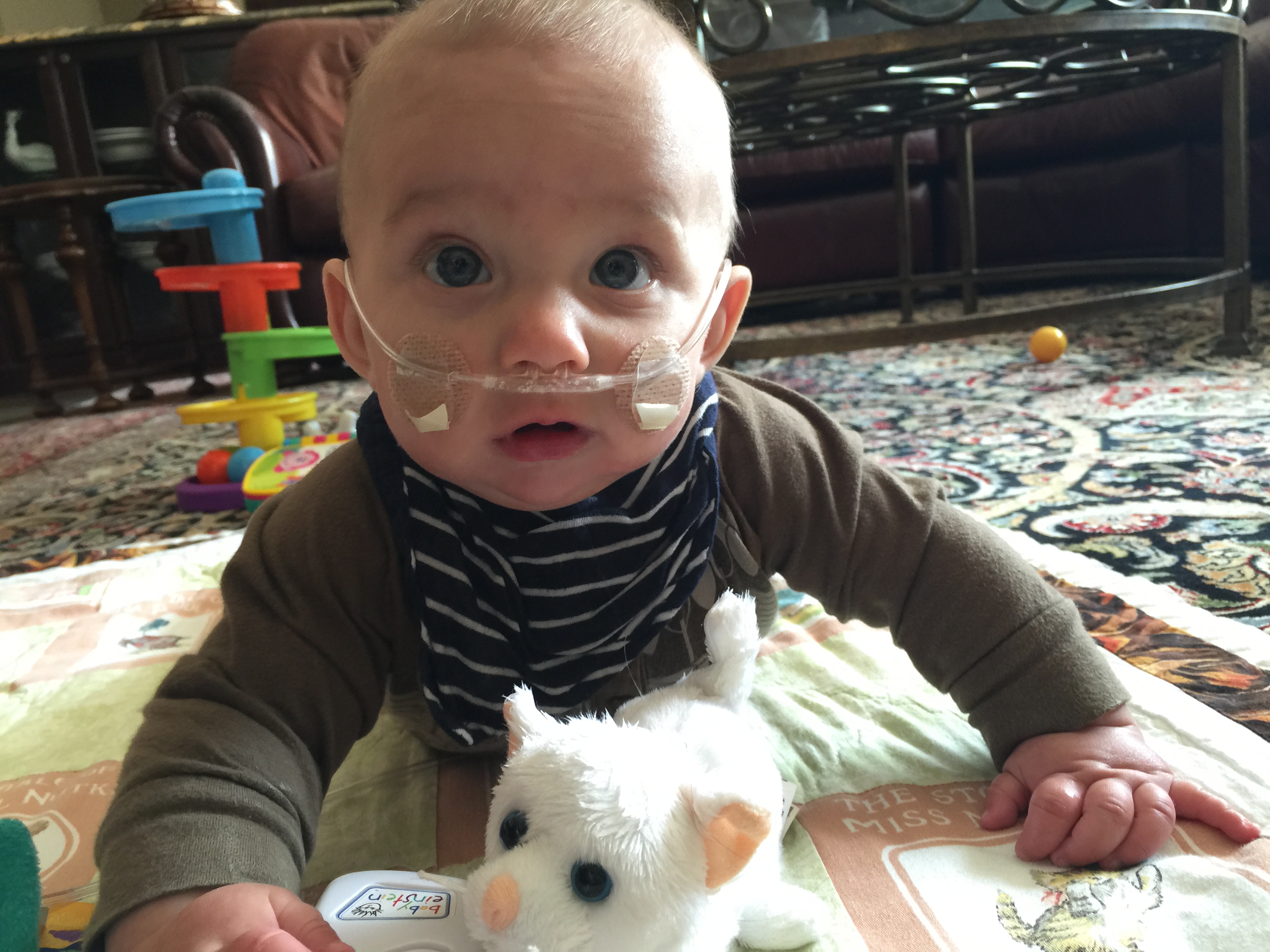At 11:52 p.m. on April 21, 2015, our second son Grant was born. I held his adorable little face, looking into those beautiful eyes and smelling the sweet scent of a new baby. I was taken back by how little he was. I was so used to chasing a toddler around I forgot how tiny they start out.
Eventually the nurses encouraged me to try and nurse him. I put him to my breast, and he latched perfectly. I cried happy tears. At this moment everything was perfect. But while looking down at that little face trying to nurse, something seemed off. I didn’t feel anything happening. The nurses assured me this was normal and that I needed to just keep trying with him.
For the next 24 hours I would try to nurse him constantly and nothing would happen. He had a perfect latch, I had the perfect hold, but I felt no milk leaving my breast, and he was getting more and more tired.
Exactly 24 hours after he was born he was taken away from me to do newborn screening. I was happy to maybe get a little rest and try to nurse him when he came back. A few hours passed, and they brought him back to me. It was 2 a.m. My husband was home with our 2-year-old, and I was alone in the hospital with my new baby. The doctor and nurse both sat down on my bed and explained to me that Grant is special. I would need to pump for him. Grant was born with Pierre-Robin sequence, a rare birth defect that causes a cleft soft palate and narrow airways, which we ultimately found out is a part of a broader disease known as Stickler syndrome.
As I sat there in the hospital trying to digest this new information, I felt hopeless. I was scared and alone. I felt guilty for mourning the baby I thought I was having and trying to accept this new life presented to my family and me. I was given packets of information, sent to many doctors. We also had to have specialists come to our house for the first few weeks to teach us how to feed him with his special needs feeder and how to use oxygen machines. G-tubes and special formulas to help him gain weight were always the top of the doctor’s lists to talk about with me.

Everything about his care scared me. I had to check his oxygen levels often since he needed to sleep with supplemental oxygen, and he had to sleep on his stomach to keep his tongue from getting caught in his cleft. I spent the first few months of this little guy’s life in complete shock. I cried so much, every day. I was adjusting to a new life style. My life revolved around pumping schedules, feedings that took so long due to the special bottles, doctors’ appointments and managing a 2-year-old toddler.
I tried to keep life as “normal” as possible, but I was struggling. I would stay up late listening to him breath, checking his machines to make sure they were doing what they were suppose to do. I had never felt exhaustion like this before.
As the months went on, all of us adjusted to our new life style. Things were different, but they became good. Grant’s resilience and strength showed through with each day, doctor’s appointment, and surgery. Grant had 46 doctors in his first year.
On April 21, 2015, my life changed forever. I became a special needs mom. I had no idea what that was and how much more I would need to become. I was already a full time stay-at-home parent, but I also became a patient advocate, a caregiver, a researcher. I learned the ins and outs of insurance and disability, and I am now an expert with supplemental oxygen, breathing machines, apnea monitors, special needs feeder, spica cast, specialty car seats, clothing and so much more.
So many days I felt like I couldn’t do it; I didn’t know how to do it. Once, when I was having a rough day and saying I couldn’t do this, it’s so hard, a friend said to me, “You already are doing it.” That really helped me. It helped me realize we are already fighting through the rough times and have made it so far already. We have established our new normal.

He is the happiest baby I know and is full of life and so much energy. He is a blessing to us. I was so scared at first and had no idea how we would do this, and now I am so happy he is here. He has taught me how to stay strong and have courage I didn’t know I had.
Grant right now is in a spica cast due to hip dysplasia, which is assumed to be caused by his Stickler syndrome. He will get out of the cast in a few weeks and then will walk with braces for about a year. We are taking each day as it is presented to us, but as I look back at that new mom crying in a hospital bed not knowing what her future was like I wish I could tell her that it does get easier. It gets better, Mama.

